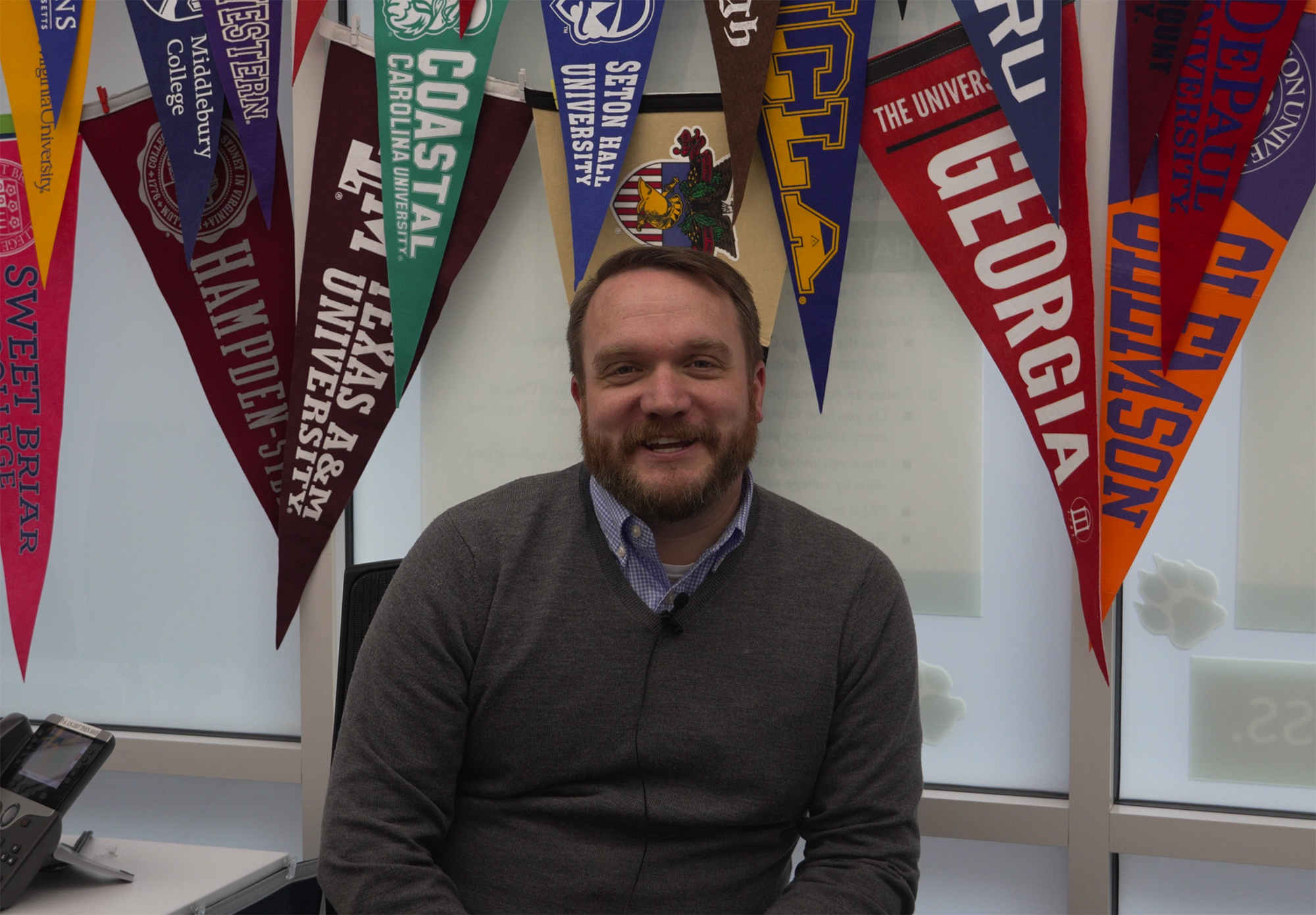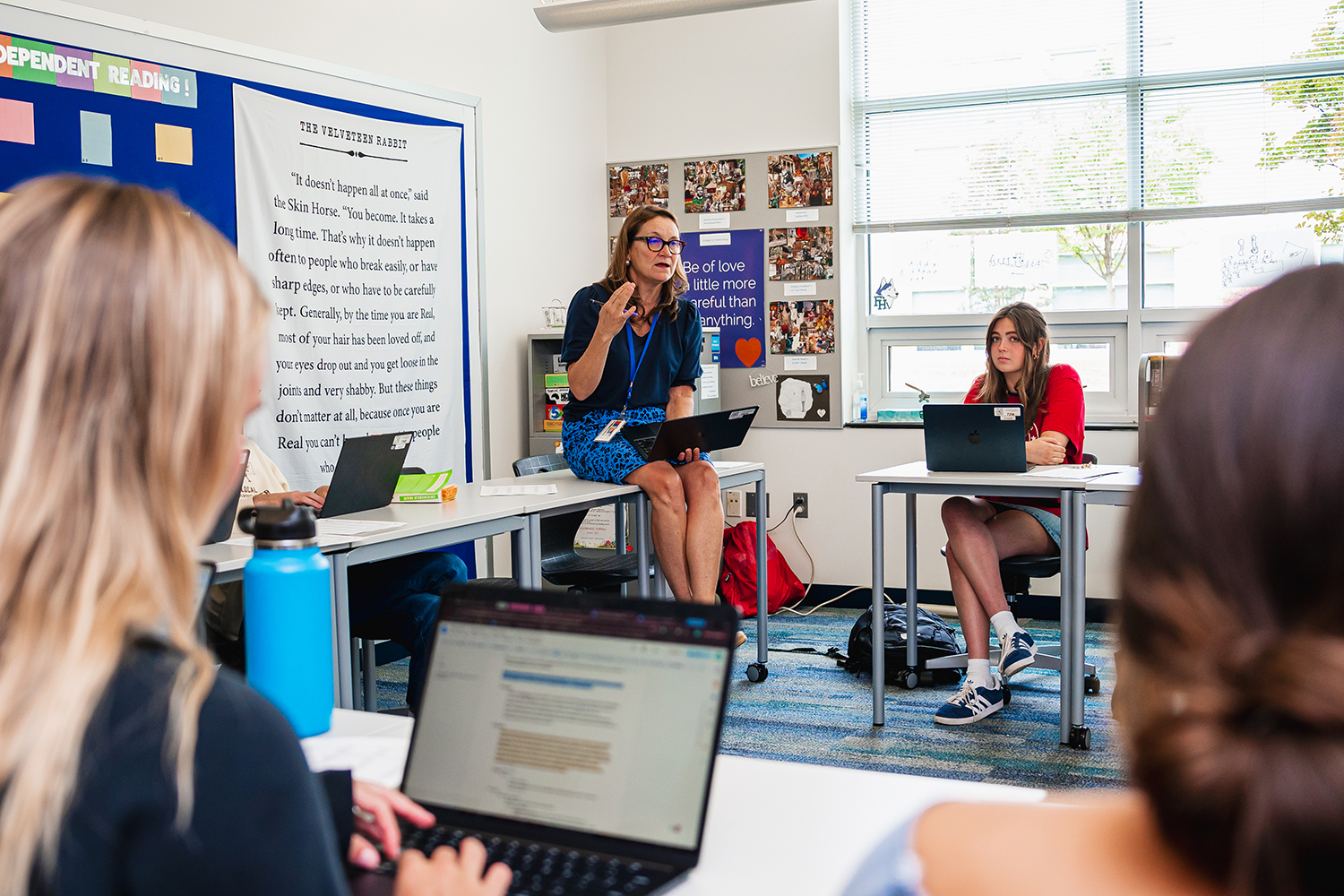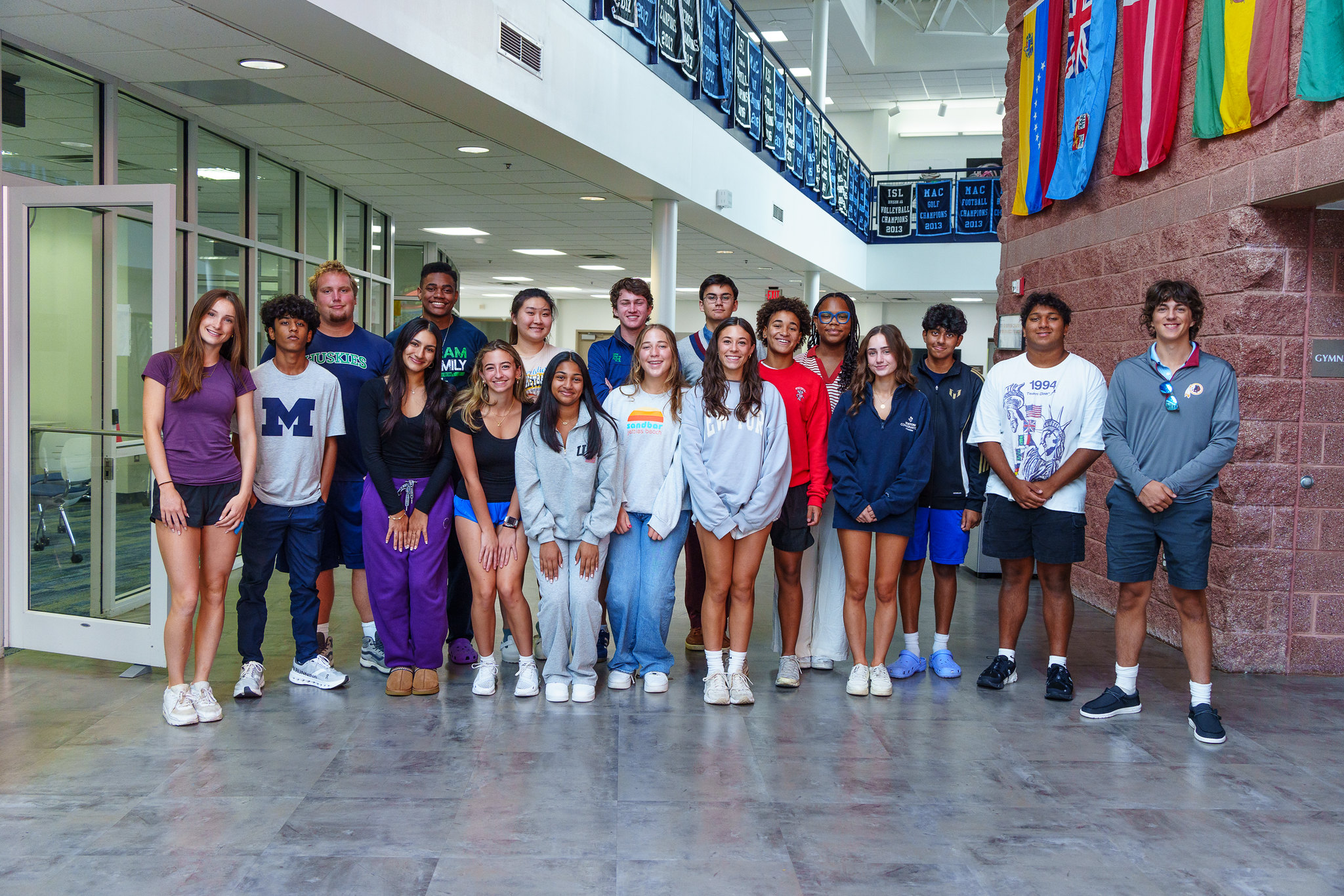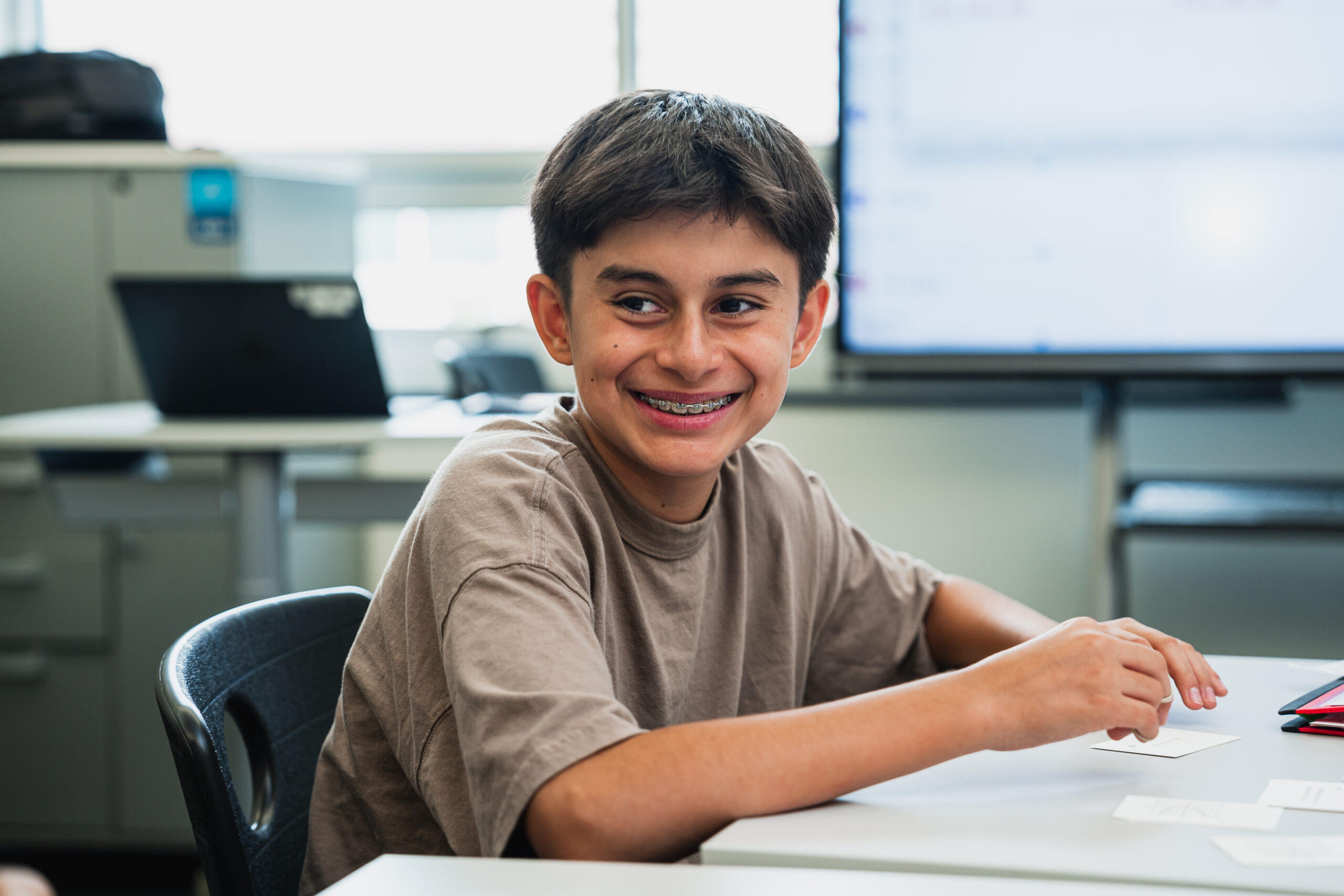LEARN MORE ABOUT FLINT HILL
HUSKY HIGHLIGHTS
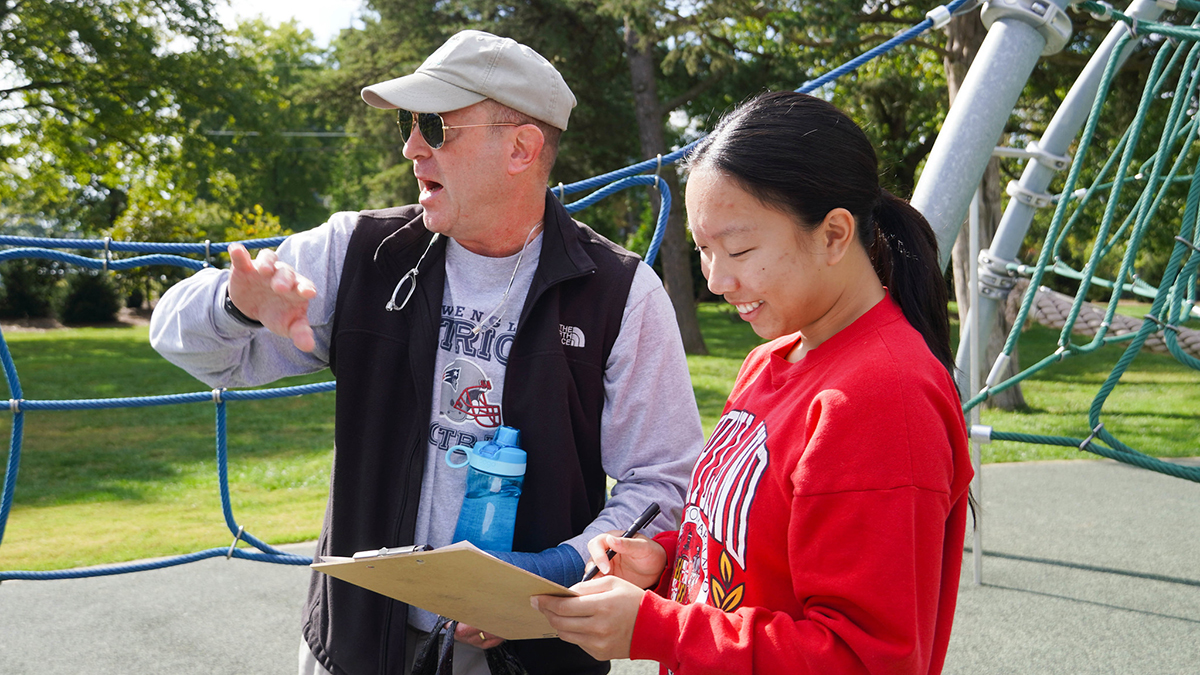
August 2, 2022
Written by Flint Hill Admission Team
Teacher Spotlight: Gary Smilowitz, Middle and Upper School Science
Gary Smilowitz brings almost 30 years of experience in naval aviation and engineering to Flint Hill, where he’s onto his third career: teaching. He aims to make science concepts relevant and interesting to his middle and upper school students.
What do you love about teaching science and engineering?
Not only is it a great topic and I relate to it from my background, but also we teach using best practices. We use the Next Generation Science Standards as a baseline. And we infuse into that all our lessons learned from years past.
Teaching this grade level, things change. Students change, as does how they learn. Technology changes and how we can present the subject changes, too. But I always like to present something hands-on, interesting, relevant and updated. That's a challenge, but it's great to be able to do that here in this environment.
What’s your favorite thing about teaching middle school students?
Teaching middle school science is a combination of excitement, discovery, wonder and skills. We really start getting into the study skills, learning how to learn science in a meaningful way that they can use later on. And all these things combined, you want to make it relevant.
So when studying earth and space, obviously we can't take them to the middle of the earth. We can't take them to the atmosphere, we can't take field trips into space. We have to make this relevant for them, whether it's new discoveries or topical items that they see in the news, such as the weather or the changing atmosphere and climate.
This age is an exciting time. There's a lot going on with their own learning and changing, but they also are not afraid to voice their opinions, and they're not afraid to ask you as many questions as they can possibly fit in a class period. I enjoy the excitement and the challenge of being able to show up every day and be surprised and also learn something from them.
What I absolutely love, though, is almost every class is an opportunity for a “wow” moment. A student will say, “Oh, I finally get it. I finally understand.” Whether it's hands-on or working with a partner.
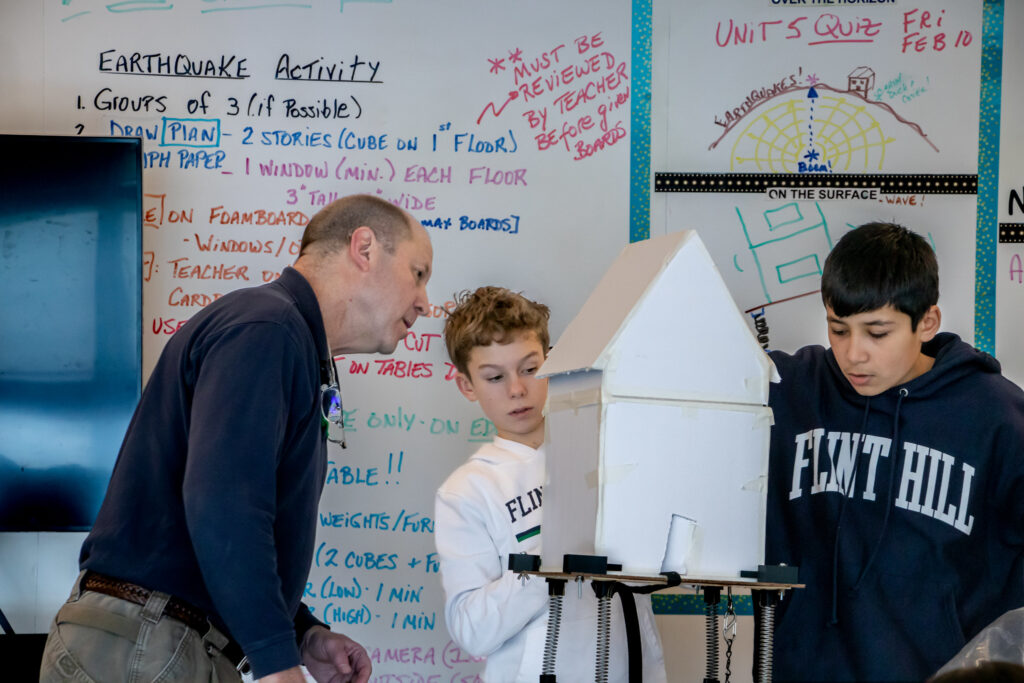
Tell me a little bit about your Discovery of Engineering class.
I teach an Upper School course that I designed called Discovery of Engineering. It's an elective course open to freshmen through seniors — no prerequisites, no math or science needed. All we ask is that you come prepared to learn and be open-minded.
This is a course that I wrote. I realized that we were asking the wrong questions. Most people ask, “Who wants to be an engineer?” I changed the question to, “What do you know about engineering?” And in that case, 99% of the world hardly knows anything about all the kinds of engineering.
Of the 45 types of engineering, we quickly introduce 20 different kinds of engineering in one semester. We use different strategies of learning. So we use research, small projects and hands-on projects. We have guest engineers from George Mason University, University of Virginia, Virginia Tech, University of Connecticut, and Washington State University. They talk to the students about their specific journey and their specific type of engineering. At the end of the class, the students present a notional project as engineers. It usually takes six to seven class periods, but parents, faculty and engineers are invited.
What's amazing about the course is that from day zero to the last day of the presentation, it's a remarkable progression of how much they've learned about engineering. On that last day, they actually sound like and are engineers while they present.
Do you have any students who went on to study engineering after learning about it in your course?
Before the course starts, I send out a survey asking how many of the students would like to be engineers. About a third say, “Yes, definitely.” About a third say they don't know. The last third say, “No way.” My goal for them is that even if they don't want to be an engineer, then they know why.
So we have quite a few students that have gone on to engineering, whether they thought they were going to like it or not. In fact, one of my first students from the class is graduating at the end of this year, and she's going to be an ocean engineer. I’m really proud of where she's going with that. Another student of mine became a construction engineer.
LEARN MORE ABOUT FLINT HILL
Fill out the form to receive updates from our team.
RECOMMENDED FOR YOU
Upper School Freshman Class Dean Andrew Kane shares seven key things he wishes parents knew before their students start high school.
Flint Hill's Women’s Literature course explores what it means to navigate the world as a woman. It features a broad range of media to shed...
Our Upper School Dean of Students talks about leadership opportunities that are available to students in grades 9-12 at Flint Hill.
Want to know how Flint Hill Upper School students choose their courses each year? We provide an insider's look at the process.



